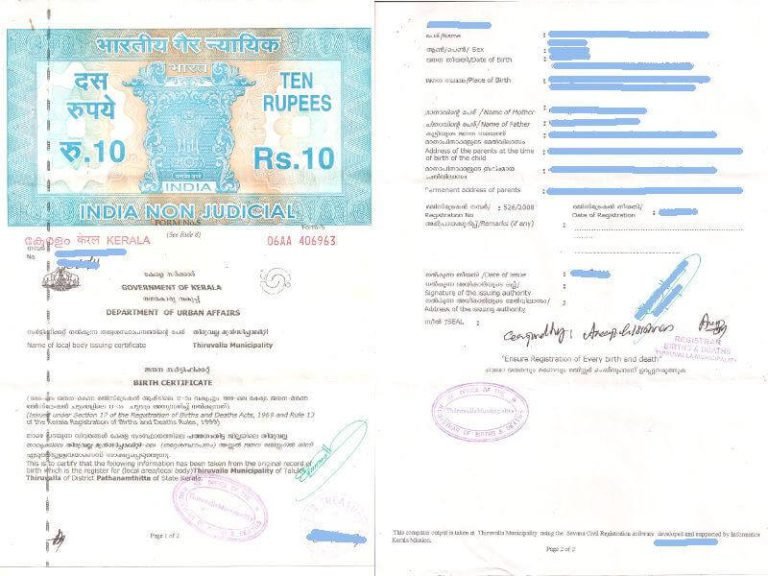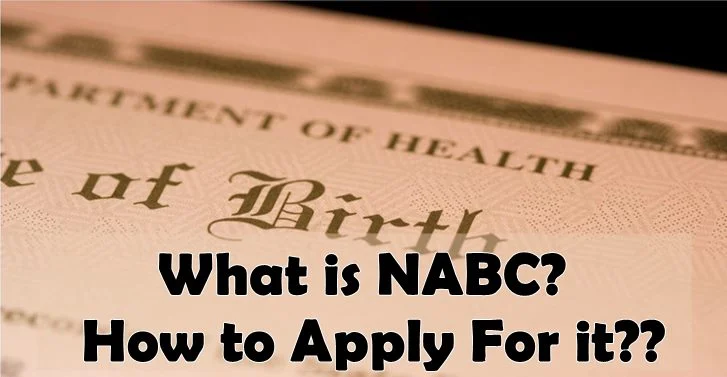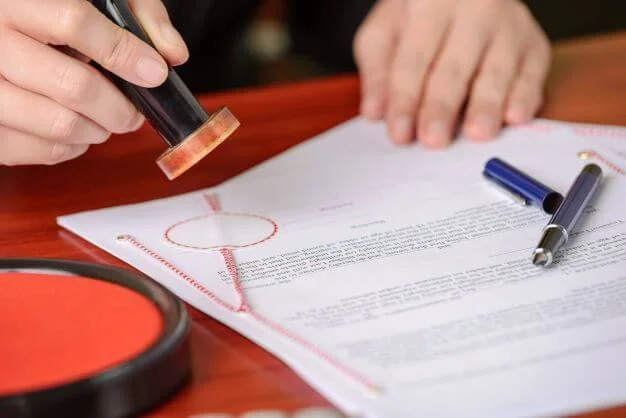Death Certificate
A "death certificate" is a legal document that confirms the demise of a specific person. Either a doctor or the official registrar of vital statistics can issue this death certificate. Information such as the date, place, and cause of death mentioned here may be included in a death certificate or register.
Easy Process and Documentation
Required Documents
- Identity Proof of Applicant
- Residential Address Proof of Applicant
- Identity Proof of Deceased
- Permanent Address Proof of Deceased
- Proof of Death of Deceased
- Affidavit
- Deceased person photograph
Cost and Timeframe
- Our professionals will review your paperwork with local government officials to establish feasibility, timeline and cost. Our quote stays unchanged during work. Location affects procurement time and cost. Send us your documents and complete specs for a price and expected response time.
- On an average Procurement takes four to six weeks.
2000+ locations Served
Happy Clients 50000+
Averge Google Rating 4.9
India's Most Trusted Legal Documentation Portal
Death Certificate– How to get Death Certificate
According to the regulations of the Registration of Birth & Death Act, 1969[1], every death in India must be recorded with the state’s Registrar. After that, you’ll be able to get a copy of the death certificate.
What is a Death Certificate?
A death certificate is a legal document that states the deceased person’s name, date of death, place of death, and other relevant details. Certified by a medical professional and officially issued by the State. It is not available until the death certificate has been filed.
HOW CAN A DEATH BE REGISTERED?
Depending on the location where it took place, a death may be reported to and registered by a different set of individuals. The following individuals are responsible in accordance with the location of the incident:
- If it happens in a house, the head of the family is the one who needs to report it.
- In the event that it takes place within a medical facility, the person in charge of medical operations must file a report.
- If it takes place inside of a prison, the warden or other person in charge of the facility must report it.
- In the event that the body is discovered in an isolated location, the headman of the village or the person in charge of the local police station should be notified about it.
Before making a request for a death certificate, it is necessary to have the death officially registered. Within twenty-one days of the passing of the person, the death must be registered with the appropriate local authorities by filling out the forms that have been prescribed by the Registrar. Following the completion of the necessary verification steps, the certificate is then issued.
If the death is not registered within the first 21 days after it has taken place, permission from the Registrar or the Area Magistrate, as well as the fee that is prescribed for late registration, are both required.
The application form that you are required to fill out and submit can typically be obtained from the authorities of the area’s local body or from the Registrar who is in charge of maintaining the Register of Deaths.
Online death registration
Some states in India have simplified the process of registering a death by allowing electronic uploads of documents, but others still require physical submissions. Even in states that have simplified the process. In Delhi and Chandigarh, hospitals can issue death certificates online. The family does not need to go to the hospital to get these certificates. You can get a death certificate from India’s Civil Registration System [2]. The steps to register a death online are:
Step 1: To report a domiciliary event (within 21 days), register for event reporting at the link below. Doing so will allow you to report the event on time.
Step 2: Once logged in, users must complete the birth/death reporting form in its entirety, including the legal and statistical sections, to the best of their ability.
Step 3: Print the application and deliver it BY HAND to the designated Registrar.
Step 4: Users will be notified via e-mail when the registrar receives the application. This happens once the application is received.
If there is a delay, more than 21 days after the death, you cannot access a death certificate online. If so, a registration application must be obtained from the Registrar’s office, along with any required documents and the late fee.
What documents are needed to register a death?
The following documents are required to register a death:
- The reason of death medical certificate.
- The NHS Card (also known as the medical card)
- Certificate of birth for the deceased
- License to drive of the deceased (if any)
- Certificate of marriage or civil partnership (if applicable)
- Passport held by the decedent
- Evidence of address (e.g. utility bills)
The following information about the deceased is required by the Registrar before registering the death:
- Date and location of the person’s passing
- The location of the deceased’s home.
- The complete names (including the maiden name of a married woman). Any previous married name, as well as any other names by which the deceased was known.
- What he or she does for a living
- Specifics about their spouse or civil partner, if they have one.
- Whether or not the individual was receiving a pension or other benefits from the government.
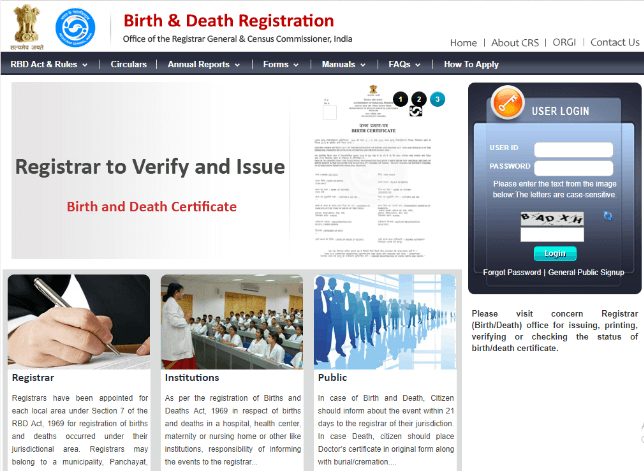
What are the documents required for getting a Death Certificate?
The following is a list of the papers that must be shown to the Registrar in a state in order to acquire a death certificate for an individual:
- A document that provides evidence of the decedent’s date of birth and age, such as a birth certificate, matriculation certificate, PAN card, voter identification card, or similar document.
- an affidavit that details the date and time of the person’s passing.
- Evidence of the decedent’s passing, such as the cremation receipt or a letter from the hospital, etc.
- A duplicate of the ration card that belonged to the person who has passed away.
- The necessary payment, which must be submitted in the form of court fee stamps.
- Documentation proving the dead person’s address, such as utility bills, water bills, and the like.
- Additionally, the individual who wishes to acquire a death certificate from the Registrar may be needed to provide evidence of his relation with the dead, his entire address, as well as proof of his nationality.
- The applicant is responsible for filling out Form 2, also known as the Death Report.
- a letter of authorization in the event that the authorised individual has photo identification, a PAN card, or something similar.
Before issuing a death certificate, the Registrar in the state may ask for any, all, or none of these papers from the individual requesting the certificate.
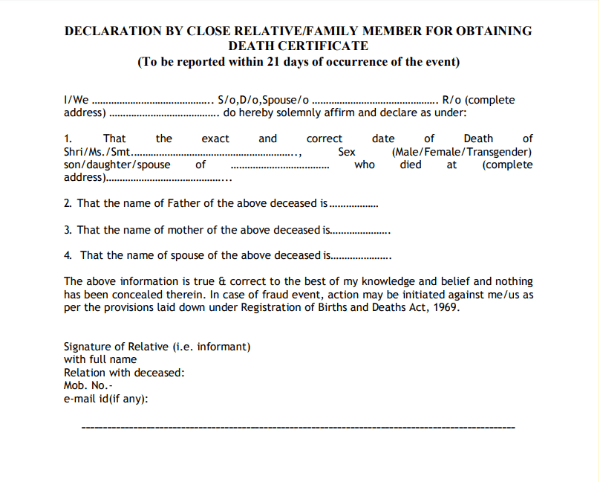
Who can Help You?
Getting a death certificate and certifying a death can be difficult. To complte the process, one must study the legal system and visit multiple government agencies, which is time-consuming and inconvenient.
LegalDocs Advisor saves the day. Consult a registration attorney who understands your needs. Remember information and rules.
LegalDocs Advisor lets you find an Indian lawyer online. You may schedule an appointment with a seasoned lawyer whenever it’s convenient.
Call +91-9540768780 or contact support@legaldocsadvisor.com with any legal questions.








